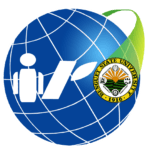This program focuses on the international capacity building projects lodge in the University and is also the evaluation of potential Membership in international organizations. This is to expand the networks and linkages of BSU. This can Help enhance BSU’s academic reputation.
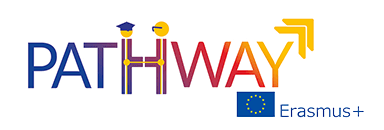
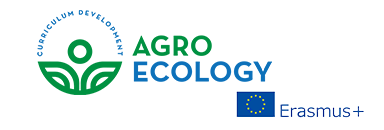
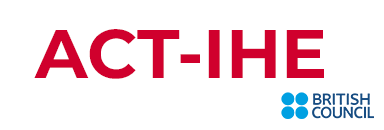
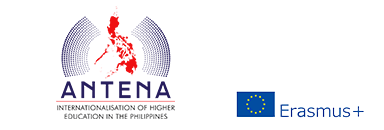
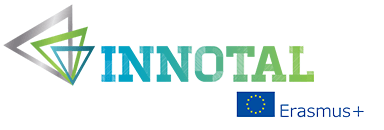


Capacity-Building For Internationalization
October 17, 2023Project CDAE Concludes at the Vietnam ConferenceCurriculum on Agroecology (CDAE) Project Leader, Janet P. Pablo, along with project members Maria Luz D. Fang-asan, Kenneth A. Lauran, and Joanna I. Alafag, travelled to Hue University, Vietnam to participate in the Final Conference for the Curriculum on Agroecology from October 11 to 15, 2023. During this event, the group delivered a presentation on the pilot offering of the Master of Science in AgroEcology at Benguet State University. The master’s program received approval from the Board of Regents on July 27, 2023, as per BOR Res. No. 43 s. 2023. Currently, seven students are enrolled in the program.In addition, the team had the opportunity to showcase other degree programs offered by Benguet State University through an exhibit during the conference.𝐀𝐛𝐨𝐮𝐭 𝐭𝐡𝐞 𝐌𝐒𝐀𝐄 𝐏𝐫𝐨𝐠𝐚𝐦The Master of Science in AgroEcology is designed to address the complexities of agriculturally used landscapes with a focus on sustainable development. It encompasses the intricate application of agroecological concepts within landscape-ecological contexts and tackles critical issues related to water management in agroecosystems, landscape design, and soil protection, with practical applications and a real-world perspective.Moreover, this program is a collaborative effort, with instruction provided by the College of Agriculture (CA), College of Forestry (CF), and College of Natural Sciences (CNS). […]
October 13, 2023Curriculum on Agroecology (CDAE) Project Leader, Janet P. Pablo, along with project members Maria Luz D. Fang-asan, Kenneth A. Lauran, and Joanna I. Alafag, travelled to Hue University, Vietnam to participate in the Final Conference for the Curriculum on Agroecology from October 11 to 15, 2023. During this event, the group delivered a presentation on the pilot offering of the Master of Science in AgroEcology at Benguet State University. The master’s program received approval from the Board of Regents on July 27, 2023, as per BOR Res. No. 43 s. 2023. Currently, seven students are enrolled in the program.In addition, the team had the opportunity to showcase other degree programs offered by Benguet State University through an exhibit during the conference.𝐀𝐛𝐨𝐮𝐭 𝐭𝐡𝐞 𝐌𝐒𝐀𝐄 𝐏𝐫𝐨𝐠𝐚𝐦The Master of Science in AgroEcology is designed to address the complexities of agriculturally used landscapes with a focus on sustainable development. It encompasses the intricate application of agroecological concepts within landscape-ecological contexts and tackles critical issues related to water management in agroecosystems, landscape design, and soil protection, with practical applications and a real-world perspective.Moreover, this program is a collaborative effort, with instruction provided by the College of Agriculture (CA), College of Forestry (CF), and College of Natural Sciences (CNS). […]
September 21, 2023𝐂𝐀𝐏𝐀𝐂𝐈𝐓𝐘 𝐁𝐔𝐈𝐋𝐃𝐈𝐍𝐆 𝐅𝐎𝐑 𝐈𝐙𝐍| Fulbright Specialist Training of Trainers Program Kicks-OffThe Fulbright Specialist Program’s “Global Curriculum Par Excellence: Sharing of Best Practices in Indigenizing and Engendering the Curriculum for Internationalization” training program officially started on September 19, 2023. The primary objective of this program is to equip faculty participants with the essential skills and knowledge needed to effectively utilize Information and Communication Technology (ICT) in their teaching methods and curriculum development efforts.During the commencement of the program, Kaisipan Fellow Nina Maria Estudillo provided an overview of the iLearn, iCreate, iShare Digital Framework that the participants will be working with. She explained key concepts that will complement the lessons to be covered in the upcoming days.Fulbright Specialist Maria Africa Beebe facilitated an open discussion where participants identified the limitations of advancing the curriculum through digitalizing classrooms. The discussion explored the challenges and potential barriers that may arise when integrating ICT into the curriculum.A total of 15 participants attended the opening program. Among the participating colleges were Forestry (CF), Information Sciences (CIS), Human Kinetics (CHK), Public Administration and Governance (CPAG), Teacher Education (CTE), and Bokod Campus. These participants are set to undergo three weeks of intensive training, which will be delivered through a combination of face-to-face and online sessions. […]
September 21, 2023The Fulbright Specialist Program’s “Global Curriculum Par Excellence: Sharing of Best Practices in Indigenizing and Engendering the Curriculum for Internationalization” training program officially started on September 19, 2023. The primary objective of this program is to equip faculty participants with the essential skills and knowledge needed to effectively utilize Information and Communication Technology (ICT) in their teaching methods and curriculum development efforts.During the commencement of the program, Kaisipan Fellow Nina Maria Estudillo provided an overview of the iLearn, iCreate, iShare Digital Framework that the participants will be working with. She explained key concepts that will complement the lessons to be covered in the upcoming days.Fulbright Specialist Maria Africa Beebe facilitated an open discussion where participants identified the limitations of advancing the curriculum through digitalizing classrooms. The discussion explored the challenges and potential barriers that may arise when integrating ICT into the curriculum.A total of 15 participants attended the opening program. Among the participating colleges were Forestry (CF), Information Sciences (CIS), Human Kinetics (CHK), Public Administration and Governance (CPAG), Teacher Education (CTE), and Bokod Campus. These participants are set to undergo three weeks of intensive training, which will be delivered through a combination of face-to-face and online sessions.re Forestry (CF), Information Sciences (CIS), Human Kinetics (CHK), Public Administration and Governance (CPAG), Teacher Education (CTE), and Bokod Campus. These participants are set to undergo three weeks of intensive training, which will be delivered through a combination of face-to-face and online sessions. […]
August 4, 2023On September 8, 2022, the academic and administrative staff, participants, and resource speakers convened in a plenary session at Everlasting Hall, Research and Extension building, for the lsast day of the Study Visit to the Philippines: Capacity-building training of the Curriculum Development in Agroecology project funded by Erasmus+.Marios Paraskevopoulos (Paras) & Michalis Tsakonas, resource speakers from Novel Group Sarl (Novel), commenced the training about networking skills and discussed three topics: partnerships and communication, computer-mediated communication, and branding and contextual design. Paras discussed that networking is getting to know the people who can assist in creating your career prospects. On the other hand, partnering relates to actions and arrangements in which both parties agree to cooperate and collaborate to progress their joint and mutual interests. He also added some of the importance and differences of having partners and networks. “Networks open new doors for new opportunities, and it gets support from high-profile individuals while partnering provides opportunities to learn new strategies and get or make your project/institution/organization more popular or known. So, it is important to choose your partner well in projects and linkages,” Paras advised.Paras cited that the pandemic opened many online networking communities, but most struggle to make meaningful connections. So, Paras suggested that to make your connections expand, one must join in networking events such as conferences or study visits. “Networking events can be physical conferences or online. Setting up physical and online conferences should be planned strategically and carefully. We should also evaluate if the venue is conducive or appropriate or if the participants are familiar with the online platform to be used,” said Paras.Tsakonas ended the Vocational Educational Training with his branding and contextual design lecture. He emphasized that quality and personal excellence are crucial elements of branding. “Some things that can impact personal brands are using an email signature, accounts on LinkedIn, business cards, emails, voice messages, and any presentation or visual aids presented or handed to anyone. Choose wisely on social platforms to mainstream your branding, and focus on what is important to your organization rather than what is most popular,” said Tsakonas.The morning plenary session continued with a presentation from Rui Amaro of Polytechnic of Coimbra featuring the Analysis of an Agroforestry farm of 1,305ha with three main objectives; type of forest, trees, animal production, and pastures (Irrigated & Non-Irrigated Land).Further, Janet Pablo, BSU project leader, facilitated the networking activity prepared for the last day of the Study Visit to the Philippines. This activity allows the European partners and Benguet State University to exchange information in areas of agriculture, forestry, environmental science, statistics, and the opportunities for the MSAE program. This engagement involves research directors, department chairpersons, faculty of various colleges, and heads from the admin sector of the university.Moreover, the afternoon plenary session commenced right after the networking engagement. The afternoon session focused on the remaining two replication training and the presentation of the Virtual Learning Environment platform.Manuela Abelho of Polytechnic of Coimbra started the afternoon session with her lecture on Soil Microbial Biomass as an Indicator of Soil Health. “The increasing demand for food led to intensive agriculture, which resulted in using fertilizers and pesticides. With these problems, organic agriculture is viewed as a solution. Also, the effects of microorganisms and microbial biomass as an indicator of soil health and basis for productivity seems to be the best practice in organic agriculture,” explained Abelho.The replication training was completed by Pedro Moreira of Polytechnic of Coimbra in his lecture on Circular Economy in Agroecosystems. Moreira stated that the ‘circular economy in agriculture production and agricultural commodities reduces as much as possible the external inputs, closing nutrient loops, and reducing negative discharges to the environment for both waste and emissions. “It is like transforming a/the waste into a solution to the system,” Moreira added. Further, Moreira emphasized organic agriculture as a tool for a circular economy and cited their Project Divulgar-Bio as an example. “This project created publications- manuals for organic agriculture with the help of partners from various universities and directly involving farmers and organizations,” Moreira supplemented.As a pre-ending capacity-building activity, Novel presented the Virtual Learning Environment (VLE) platform via Zoom to the consortium and the participants. Nikolaos Politopoulos virtually walked through the participants and partners to the VLE platform. Specifically, Politopoulos presented how to: create an account, access the course, and how to use the platform’s features. He also presented valuable references to familiarize the platform. “The platform and the courses are already accessible; the sooner you create an account, the sooner we can assist you if you have concerns using the platform,” said Politopoulos.The Study Visit to the Philippines: Capacity Building of Academic and Administrative Staff ended with a sharing of takeaways from the European partners and the participants from Benguet State University and Central Luzon State University. The Director of the International Relations Office, Maria Luz D. Fang-asan, delivered the closing statements of the event.More information:https://agroecologyproject.eu/#CDAEProject#ErasmusPlus#TheAgroecologyWay […]
August 4, 2023On September 7, 2022, the Capacity Building for administrative and academic staff was divided and transpired simultaneously. Resource speakers from Novel Group Sarl handled the Administrative Staff, while Mendel University in Brno and Polytechnic of Coimbra managed the academic staff. Selected students of Benguet State University from the College of Agriculture and Natural Sciences also participated in this engagement.During the administrative training, the Novel Group Sarl (Novel) discussed three skills: business administration skills, management skills, and fundraising skills. Michael Tsakonas of Novel lectured on management skills. The first slide of his presentation received attention from the participants. It is a quote that says; success today is no guarantee of success tomorrow. “One-day success doesn’t determine the success for the entirety. There are many possibilities and outcomes that can affect tomorrow, and complacency is dangerous in management. Keep exploring beyond boundaries and innovating,” stressed Tsakonas.The first skills highlighted the importance of making timely management decisions and leadership, including basic leadership skills for start-up agroecology projects. Then, the training progressed to business administration and fundraising skills, which engaged the participants in analyzing, assessing, and planning a business and fundraising management strategy.Meanwhile, on the other side of the hall, Mendel University in Brno (Mendelu) presented six replication training to the BSU and CLSU academic participants. The first replication training was lectured by Milada Stastna of Mendelu regarding Agroecology and its place or position in Agriculture. Stastna emphasized the principles that are aligned and unaligned with Agroecology. “Contrary to the notion of people, agroecology is not organic farming, and it comes under agroecology,” she stated.The second replication training is on Environmental Security and Ecosystem Services by Hana Stredova of Mendel. “Global security threats as of today and for the next years are nuclear war, ecological collapse, and the debate for the use of biotechnological innovations. However, these challenges can be abated when a community or countries gather together to discuss indifferences for the betterment of the world,” said Stredova.Further, Pedro Moreira from Polytechnic of Coimbra presented Environmentally Friendly Plant Protection Strategies and emphasized how plants are valuable and essential in habitat, clothing, and fighting climate change’s effects. “Plants are our helping partners in sweeping the global environment crisis and is one of the main sustainable approaches to agriculture,” Moreira added.At the halftime of the Day 3 training, the project partners had a quick visit to the BSU-International Relations Office (IRO) and an excursion to the Apiary Demonstration Farm located at the College of Forestry, which were accompanied by IRO and BSU staff during the engagement.After the quick excursion, the fourth replication training on Agroecology Directions and Examples of How to Foster Impacts of Climate Change by Stastna continued. “Agroecology plays a major role in climate change adaptation and mitigation than conventional agriculture,” said Stastna. To prove this claim, Stastna provided a case in point pieces of evidence and sustainability components for crops, soil, and water to fulfill the economic, social, and ecological of agroecology.Stredova ended the training with her lecture about Agroecology and its frame in agrosciences, agronomy, agrology, and agroecology. Stredova underscored that agriculture and the environment must go hand-in-hand. “It should not only be balancing agricultural activities which are often or most of the time devastating nature but also trying to preserve and conserve the ‘ecology’ or natural resources as much as possible,” said StredovaREAD MORE:DAY 4: https://tinyurl.com/28e9vcyfMore information:https://agroecologyproject.eu/#CDAEProject#ErasmusPlus#TheAgroecologyWay […]
August 4, 2023On September 6, 2022, the European partners and the Central Luzon State University participants for the Study Visit to the Philippines had their first part of the agroecology excursion to the Institute of Highland Farming Systems (IHFSA); Agri-based Technology Business Incubator/Innovation Center (ATBI/IC); and Strawberry Farm to introduce the highland agricultural landscape, farms and agro-biodiversity environment.The project partners explored the Insectarium, Natural Museum, Apiary, Tangere – Animal Production, and the ‘Coffee under Pines’ of Arabica Coffee in IHFSA. They were assisted by IHFSA Director Valentino Macanes, IHFSA staff, and Dr. Gemma S. Dasilen.After the experience in IHFSA, the European and CLSU’s next stop was at the ATBI/IC. Director Lesley Dale G. Umayat assisted and showcased the food processing for Dried Veggie Noodles at the Food Science Research and Innovation Center.The first part of the excursion ended at the Strawberry Farm to witness the local farm and its marketplace. ATBI staff Jocy Dangatan assisted with the tour and presented to the partners the Incubation & Innovation Center, where the co-creation lab of the Innotal Project (Erasmus+ funded) was lodged. Then, she introduced some of the initiatives and interventions of the center to assist local strawberry and vegetable farmers’ production in La Trinidad.After the excursion, the project partners proceeded to the Everlasting Hall to continue the training for Module 2A Curriculum & Module 3B Course Design Evaluation, and Module 5B Entrepreneurship Skills, where Marios Parakevopoulos and Michalis Tsakonas facilitated the training by Novel Group Sarl.Paras expressed that there are numerous ways to develop or design a curriculum, but he stressed and suggested that a curriculum should be anchored to the student’s needs and interests and meet the university’s strategic goals, mission, and vision.Further, in the discussion of the Novel Group Sarl speakers on the Entrepreneurship Skills module, they emphasized the words: listen, understand and empathize. “Knowledge is powerless if we do not listen and understand where the consumers or our employees are coming from. Know how they feel on matters. We need to be reminded that two-way communication is important for the road to success, not only to our human resources but to business or entrepreneurship,” speakers from Novel Group Sarl said.After the training, Benguet State University and Mendel University in Brno (Mendelu) had a quick discussion on possible opportunities for students and personnel for the offering of the Master of Science in Agroecology at the university. Both parties agreed to create a Memorandum of Understanding to bind the agreements and to work together even after the CDAE project ends.READ MORE:DAY 3: https://tinyurl.com/uxw4a5a9DAY 4: https://tinyurl.com/28e9vcyfMore information:https://agroecologyproject.eu/#CDAEProject#ErasmusPlus#TheAgroecologyWay […]
August 4, 2023DAY 1 | Study Visit to the PhilippinesBSU hosts the Study Visit to the Philippines: Capacity Building for Academic and Administrative Staff of the Curriculum Development Agroecology (CDAE) Project funded by Erasmus+Project leader Dr. Janet P. Pablo spearheaded the capacity-building activity at the Everlasting Hall, Research and Extension Building.“Study Visit to the Philippines is one of the lineup events under Work Package 3: Capacity Building for Administrative and Academic Staff for BSU and CLSU. This event primarily aims to capacitate the (Acad & Admin) staff in preparation for the soon-to-be offered Master of Science in Agroecology program at BSU and CLSU.Service Learning Providers are project partners from Mendel University in Brno (Czech Republic), Polytechnic of Coimbra (Portugal), Novel Group Sarl (Luxembourg)” conveyed by Mike L. Payangdo, project staff, and event organizer.The project Curriculum Development in Agroecology (CDAE) aims to provide access to agricultural knowledge and information on ecological and organic farming systems by developing a course for agroecology for the target groups. The CDAE project aims to define a new Master’s course in Asian HEIs in knowledge exchange between European and Asian HEIs. The duration of the project is from November 2019-November 2022.The training for capacity building will end on September 9, 2022. This project is among the international linkages supervised by the BSU- International Relations Office.Article & Photos:Onofre Dacocot, BSU-UPAO StaffREAD MORE:DAY 2: https://tinyurl.com/2p96spk5DAY 3: https://tinyurl.com/uxw4a5a9DAY 4: https://tinyurl.com/28e9vcyfMore information:https://agroecologyproject.eu/#CDAEProject#ErasmusPlus#TheAgroecologyWay […]
October 10, 2022𝐈𝐍𝐓𝐄𝐑𝐍𝐀𝐓𝐈𝐎𝐍𝐀𝐋 𝐂𝐀𝐏𝐀𝐂𝐈𝐓𝐘-𝐁𝐔𝐈𝐋𝐃𝐈𝐍𝐆 𝐏𝐑𝐎𝐉𝐄𝐂𝐓| PATHWAY training of trainers workshop #3 has started at the Ateneo de Manila. The staff of our employment and entrepreneurship centers will be working on soft skills and labor market observatory this week, led by trainers from University of Alicante, Spain and University of Montpellier, France. […]
March 11, 2022𝗜𝗡 𝗣𝗛𝗢𝗧𝗢 | BSU Academic task force of the Curriculum Development in Agroecology Project funded by Erasmus+ convened in a meeting on March 9, 2022.The activity focused on the presentation of the feasibility and marketability results of the Master of Science in Agroecology (MSAE). A first international graduate program soon to be offered at the Benguet State University.Dr. Janet P. Pablo, project leader, also discussed the curriculum timeline of activities. The timeline will guide the task force to carry out the planned activities at the college to university level. Activities include presentations and approval of the MSAE curriculum to the partner colleges, committees, and councils. A curriculum harmonization will also be conducted between BSU and project partner Central Luzon State University for a standardized curriculum for the MSAE program.They also tackled the laboratory equipment that will be utilized for the MSAE program. The task force had a consensus on which alternative equipment will replace the proposed supplies considering that some of the items were available in the university.The academic task force is comprised of subject matter specialists at the Colleges of Agriculture, College of Natural Sciences, College of Forestry, and the Graduate School-College of Agriculture.#CDAEProject#ErasmusPlus#TheAgroecologyWay […]
